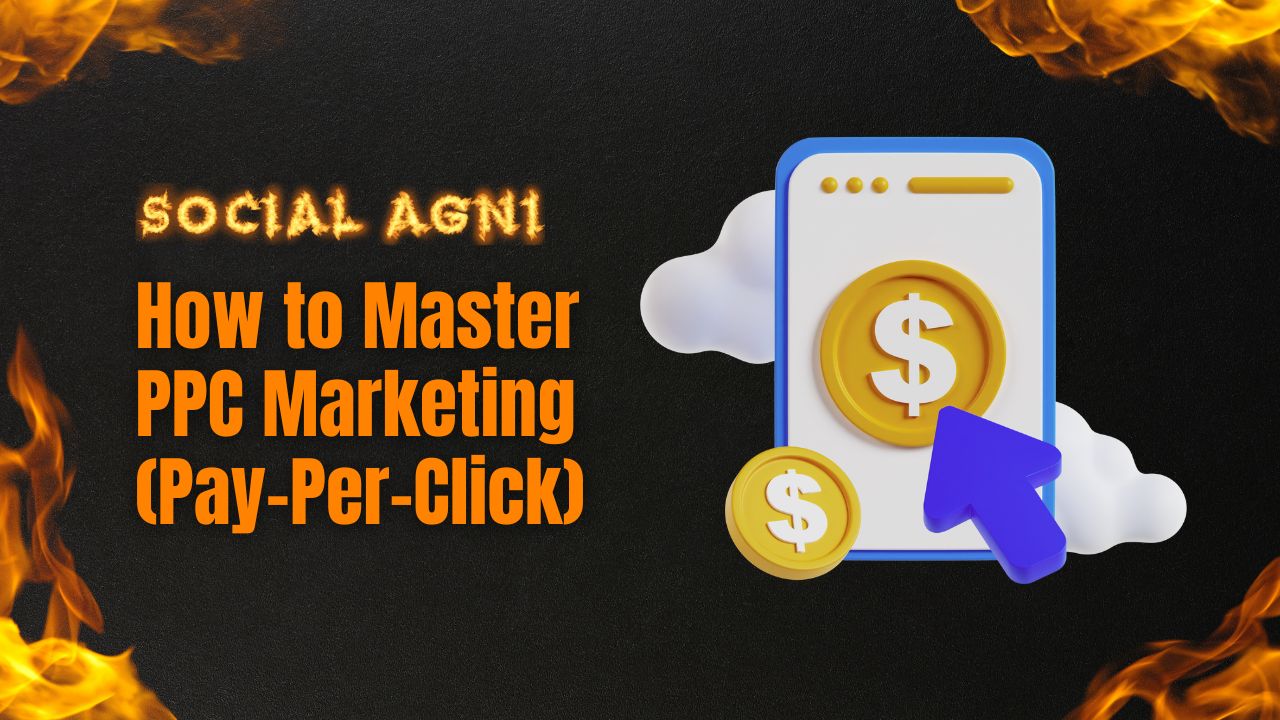In the digital age, pay-per-click (PPC) marketing is essential for online advertising. PPC ads might appear on SERPs and other related websites. It’s an inexpensive way to reach folks who want what you’re selling. Keyword bidding places PPC ads on search engine results pages. “Pay-per-click” means advertisers only pay when their ad is clicked. To succeed with a pay-per-click (PPC) campaign, keywords, ad copy, and landing pages must be carefully chosen. Pay-per-click marketing excels at targeting demographics based on geography, search history, and customer interests. Thus, organizations may better target their ideal customers than with traditional advertising. To maximize PPC Marketing, you must understand its complexity and be prepared to regularly review and adjust your campaigns. This involves finding trends in data, changing bids and budgets, and testing different ad versions to discover which performs best. This essay covers PPC marketing from campaign creation to the latest optimization tactics. This post is for beginners and experienced PPC marketers looking to improve. PPC Marketing may help your company grow. Understanding PPC Marketing Companies pay-per-click (PPC) for advertising. It’s an effective way to reach internet shoppers. PPC advertising is crucial to digital advertising and can impact a company’s bottom line. PPC advertising is simple. Advertisers install ads on related websites or SERPs. Advertisers pay per click. Keyword demand, market saturation, and other factors determine cost. PPC Marketing works because it can be targeted. Location, prior searches, and personal interests let advertisers target their perfect audience. This connects the business with serious buyers. PPC Marketing allows precise advertising budget and placement management. Advertisers may select a budget and adjust bids to ensure their ads appear in the best SERP positions. This option helps marketers reduce advertising expenses and maximize ROI. Pay-per-click (PPC) campaigns need businesses to use keywords that people use to locate their products and services. Advertisers must then create engaging call-to-action (CTA) content using these keywords. When a person clicks on an ad, they should be sent to a relevant landing page that encourages them to buy or enter contact information. In conclusion, pay-per-click (PPC) marketing works well for online customer acquisition. It allows advertisers precise control over where their advertisements show and how much they spend to attract specific demographics. PPC Marketing basics are essential for digitally competitive businesses. Setting up a PPC Campaign Profitable pay-per-click (PPC) advertising campaigns need careful planning and execution. Profitable PPC advertising basics are discussed here. Before starting a pay-per-click (PPC) campaign, set targets. This drive’s goal? To increase brand exposure, income, or customers? Clear objectives will determine your campaign’s success. Your pay-per-click (PPC) ad campaign depends on keyword research accuracy. Keyword research will reveal your industry’s search trends. Use Google’s Keyword Planner for research. After choosing keywords, create ad content using them. Make your ad copy engaging to get clicks. Landing page CTAs should be clear and relevant. Your landing page will appear when someone clicks your ad. A landing page that matches your adverts and encourages action is essential. Your landing page’s design, arrangement, and functionality should support conversions. Conversion monitoring can measure marketing success. It tracks what customers do after viewing your ad, including buying or contacting you. Conversion tracking can reveal the most successful keywords and ads. Plan your budget and bidding strategy. Manual or automated bids are allowed. As your ads perform, adjust your maximum CPC bid. Finally, a successful PPC campaign requires careful planning and constant work. Budget, bidding strategy, landing page optimization, conversion tracking software, and targets. Follow these tips to create a targeted and effective PPC campaign. Optimizing PPC Campaigns For your PPC ads to be more successful and to yield the highest return on investment, optimization is crucial. We will go through a few important tactics for optimizing your PPC advertising in this section. Examine the results of your campaign to find high-performing keywords and eliminate those that are failing. By including new keywords, and negative keywords, and changing your bids, you may improve your keyword strategy. To increase click-through rates (CTRs) and conversion rates, continuously test and improve your ad text. To identify the most effective mix, try out various headlines, ad descriptions, and CTAs. Improve the relevancy and conversion rates of your landing pages. Make sure they load quickly, have a pleasing appearance, and are simple to use. To determine the most successful design and content, use A/B testing. These tools let you provide users access to extra details like contact details, addresses, and connections to certain web pages on your site. To increase the relevancy and exposure of your adverts, use ad extensions. Watch Your Competitors: Keep a watch on your rivals and examine their landing sites, keywords, and ad text. Find ways to stand out from the competition and enhance your marketing efforts. Use automated bidding strategies to change your bids in real-time depending on performance data. Automated bidding strategies use machine learning algorithms. To save time and increase the success of your ads, use automated bidding tactics. Regularly review the data from your campaigns and make any required modifications. To make sure that your campaigns are producing a profitable return on investment, keep an eye on your budget, performance indicators, and conversion rates. In conclusion, enhancing your PPC ads’ efficacy and maximizing your ROI are both dependent on optimization. Improve your landing page optimization, ad text, and keyword strategy, use ad extensions, keep an eye on your competition, employ automatic bidding techniques, and evaluate and tweak your campaigns frequently. You may design PPC campaigns that are focused, powerful, and successful while using these tactics. Advanced PPC Marketing Techniques You may advance your campaigns and increase their success by using advanced PPC marketing strategies. We’ll talk about some cutting-edge PPC marketing strategies in this area so you may optimize your campaigns. You may target people who have already interacted with your website or advertisements by using remarketing. Remarketing may be used to re-engage consumers and persuade them to visit your website again and do the desired activity. Using audience targeting, you
